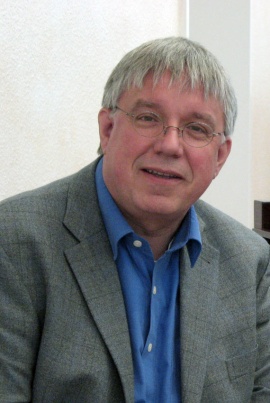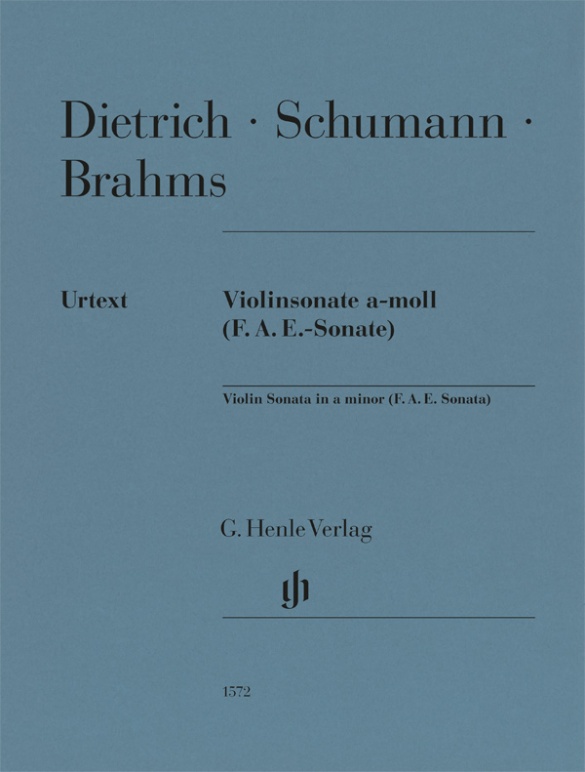Dietrich · Schumann · Brahms
Violin Sonata a minor (F. A. E. Sonata)
The so-called F. A. E. Sonata is an extraordinary collective work with an equally unusual title and concept. In late October 1853, Robert Schumann, Albert Dietrich and Johannes Brahms presented it as a surprise to their friend, the violinist Joseph Joachim, who had come to Düsseldorf to give some concerts. The three letters of its title refer to Joachim’s life motto “Frei, aber einsam”; “free, but lonely”, and the sequence of notes derived from it – f-a-e – infuses the whole sonata, more or less hidden from view. Dietrich composed the first movement, and the 20-year-old Brahms the fiery Scherzo (WoO 2), while the romantic, opulent movements nos. 2 and 4 are unmistakably by Schumann (who later took them into his own 3rd Violin Sonata in a minor).The F. A. E. Sonata remained unpublished during the lifetimes of its three composers and its dedicatee. It was not published until 1935. The present Henle edition by Michael Struck is taken from the “Violin Sonatas” volume of the New Brahms Complete Edition and supplies many new findings on problematic passages in the musical text and on the work’s genesis and reception history.
内容/詳細
(解説)
Violin Sonata (F.A.E. Sonata) [Joint effort by A. Dietrich, R. Schumann, J. Brahms] a minor
校訂者や運指担当者について

Michael Struck (校訂)
Dr. Michael Struck, born in 1952 in Hannover, studied school music, private music teaching, piano (diploma, class of Werner Schröter), musicology (Constantin Floros) and pedagogy at the music conservatory in Hamburg and at Hamburg University. In 1984 he completed his doctorate with a thesis on Schumann’s controversial late instrumental works.
He is a research associate at the research centre the new “Johannes Brahms Complete Edition” at Kiel University (member of the editorial board), as well as editor and supervisor of numerous volumes. He is the author of many musicological publications on music of the 18th to 20th centuries and other work editions. Struck is also a music critic. As a pianist he has given concerts with the vocal ensemble of Kiel University as well as with the Wiesbaden Chamber Choir and has given concert lectures (in 1989, 1997, 2001, 2005 as part of the matinees on “Raritäten der Klaviermusik” in Husum). In 2009 he was awarded the Schumann Prize of the City of Zwickau, in 2010 as a scholar at the Brahms Research Centre at the Musikwissenschaftliches Institut of Kiel University he was a co-prizewinner of the Brahms Prize 2010, conferred by the Brahms-Gesellschaft Schleswig-Holstein.
製品安全に関する情報

G. Henle Verlag
製品の製造元に関する情報はこちらでご覧いただけます。G. Henle Verlag
Forstenrieder Allee 122
81476 München
info@henle.de
www.henle.com


